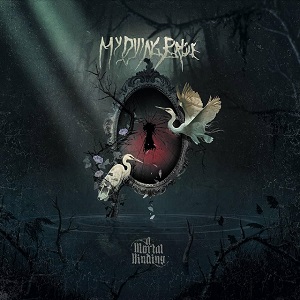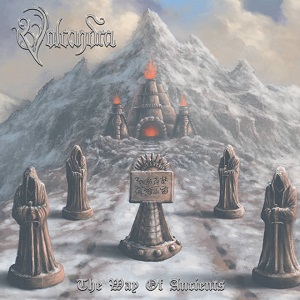SLAYER Become “Faster And Faster” - Divine Intervention Turns 20
September 27, 2014, 9 years ago

Hard (‘n’ heavy) to believe, but September 27 of this year marks the 20th anniversary of Slayer roaring back to life with their first album in four years, Divine Intervention, the band’s sixth studio slab overall. The last of four records in a row for the band to achieve RIAA-certified gold status, the album also featured new drummer Paul Bostaph, ex-Forbidden.
To celebrate this blistering work of death-infected thrash, we’ve gone back in time and brought forward illustrative quotes from Bravewords boss Tim Henderson’s interview with Tom Araya. Tim and Tom talked about the record for what was to be the fourth issue ever of the print version of Brave Words & Bloody Knuckles, which ran from ‘94 to 2008, and lives on as the site you are headbanging with right now.
“This one’s pretty intense,” mused Tom back in August of 1994. “It’s a lot like Reign In Blood right back down to square one. We figured that everybody has been slagging off and it was time to give them a taste of the real medicine.”

Asked whether the band physically could keep up with the demands of being the Slayer that rained blood on metal in 1986, Tom was unequivocal. “What do you think we’ve been working on? We’ve been rehearsing, dude! Yeah, we can do that crap. We can do it like we did it yesterday. If I can’t do it, then I will make damn sure that I work on it until I can. That’s why we’re still making the music we are now, and that’s why the record is the way it is, faster and faster. It’s really a melding of past and future. One of the main reasons the material is fast has to do with Kerry. He was the main songwriter, literally putting together all the material. Kerry has a tendency to write punk-style songs; really fast and aggressive. He wanted to write fast, but there was no intention of writing all the songs that way. That’s usually the case with our records—they never really come out as planned. With Kerry working on the majority of the material, it tends to come out a tad faster than normal.”
“I think now is a good time,” continues Araya, optimistically, given that in 1994, metal was sorely out of fashion. “The whole record is like that. Is just an extension of our past, but we’ve expanded and added new elements to the songs. Slayer is going to be Slayer. We don’t write hit songs. We don’t write commercially acceptable radio songs. We write Slayer. Slayer will come out fast. Slayer will come out heavy. Slayer will always be Slayer.”

As for his vocals on the record, “They are very overly aggressive, screaming, yelling type vocals. On some songs I go along the lines of Seasons and those are the type of vocals I want to keep as Slayer. But all the songs have a little effect on my voice. I don’t have the greatest voice in the world and the effects on the songs add different flavour. It’s just more of a highly compressed, distorted vocal, similar to what U2 did on their last album, Zooropa. We didn’t do it that extreme, but we just tried different things and they sounded really cool. I was surprised that we could add so much to a song. The last record’s vocals didn’t really have any effects on them. This time we went out of the way to purposely distort the voice.”
By this point Paul Bostaph had been in Slayer for about a year and a half. The Bay Area pounder would last with the band on and off for a decade and is back now as we speak. Said Tom at the time, “We’re not asking Paul to do anything; he’s making the effort and he wants to do his share. It’s cool because now it’s a four-piece band instead of a three-piece band with a drummer. He’s been a major asset for the band. As far as Paul being able to work with the band, I think his work on the lyrics alone proves he can work with us. I think that’s going to piss Dave off when he sees Paul’s name on the credits.”

“Dave is a really bitter person,” continued Tom, on the high-profile split that had fans wondering whether Slayer could continue. “He was the one that loved the fast shit. He wanted it to sound like Reign all the time. We’ve been very quiet about what went on with the split and he’s had a lot to say about it. The truth comes out slowly. Dave’s really upset and it appears the band he put together with Bobby Gustafson fell apart and he’s pretty much back to square one. On the other hand, we finally have a record coming out. He brought this on himself and no one is to blame but himself. Three musicians and a drummer is not a band. It never got better. As the years went on, it got worse. We just looked at each other and said, ‘How much longer do we want to put up with this?’ So we made a decision and we’re moving on to the next ten years.”
But as we’ve alluded to, the mid-‘90s found metal fighting uphill battles... “Radio doesn’t play us a lot and magazines barely give us covers. All these bands that are really doing nothing get articles and you will only see material on us when we have a record out—and maybe for a month or two. Nobody out there is helping. Most times we have to ask for a piece to be written. When it comes to Slayer, with the press, radio and MTV, we are nonexistent. We have to rely on word-of-mouth and street-level. That’s been our strongest audience.”

“Of course we have to gain our ground again,” mused Tom, in closing. “We have to go to the kids and take the initiative. We have to promote this seriously. We’ve been out of touch and I have come across some kids who were questioning if we were still a band. It’s been the same response from everyone. Isn’t it about time for a Slayer record?”
Although Divine Intervention was well received—again, selling gold—the band would stumble with an album of punk covers in 1996, and then, arguably stumble again with Diabolus In Musica, which raised eyebrows because of its modern metal touches. It wasn’t until the triumphant God Hates Us All in 2001, that Slayer had firmly established itself as a venerable, timeless band of—dare we say—classic rockers. In other words, from this point on, Slayer had somehow passed into the realm of legends, and then reinforced that fact with records that gave the fans what they wanted, namely blistering reiterations of the style they had addressed with skill and acumen through Divine Intervention, the Slayer slab BraveWords celebrates today.











